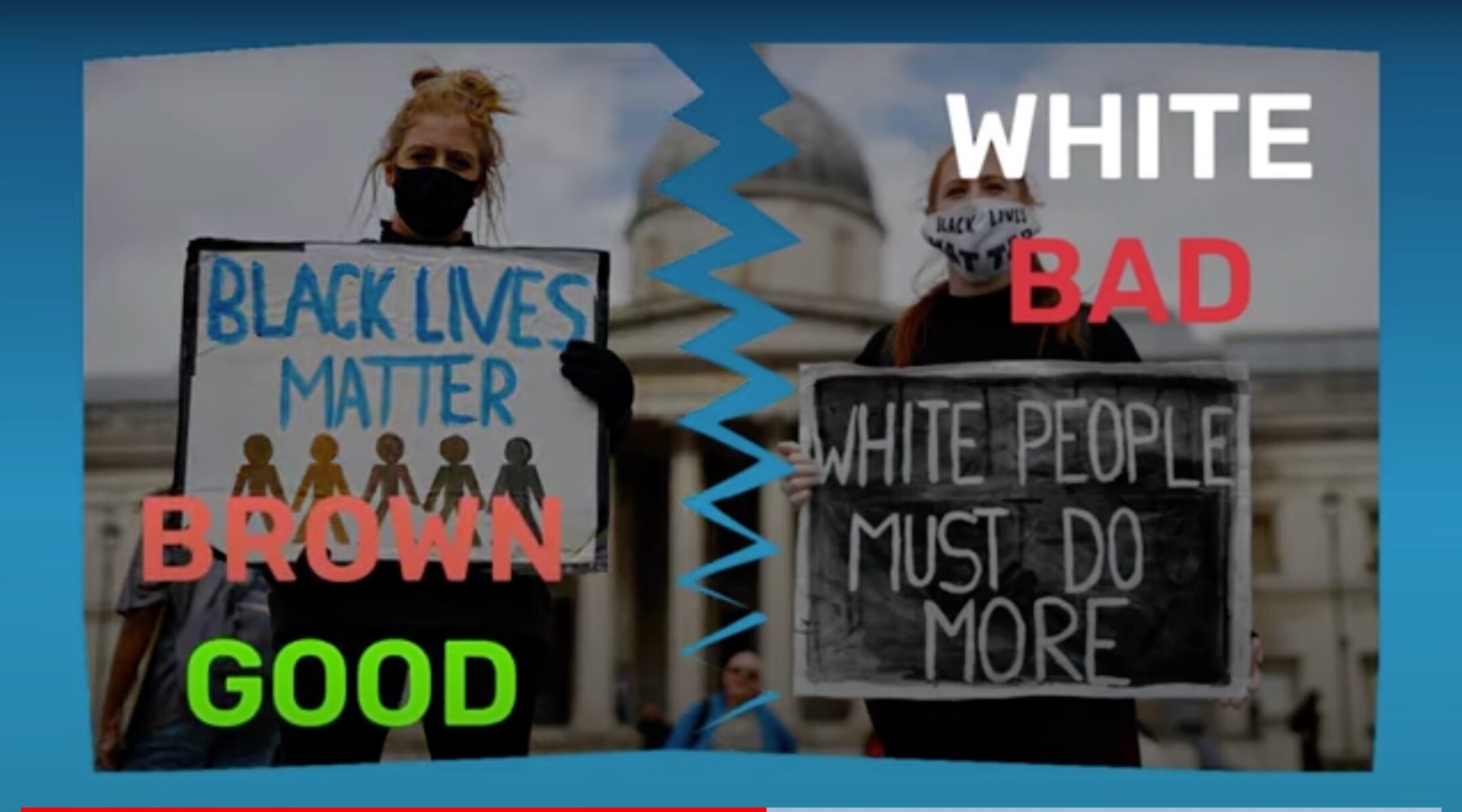(JTA) — A controversial video that sparked backlash after blaming “woke ideology” for a rise in antisemitism will not be going back online in its current form, said the CEO of the group that produced it.
The video, created by a coalition called the Combat Antisemitism Movement, first went online in early June and drew broader attention in recent days after a reporter for the Forward, Arno Rosenfeld, began asking questions about its content. The video claims that “wokeism, an ideology which purportedly calls for diversity, equity and inclusion, fan[s] the flames of antisemitism” and says that progressive ideas about race and class fuel bigotry against Jews.
Two major Jewish groups left the coalition, which presents itself as broad-based and nonpartisan, over the video. The Jewish Federations of North America, an umbrella for Jewish communal federations nationwide, told the Jewish Telegraphic Agency that it rescinded its partnership on Friday after Combat Antisemitism did not immediately remove the video and would not rejoin unless the video were permanently removed.
The Jewish Council for Public Affairs, a national liberal public policy group, likewise ended its partnership in the movement. The group’s CEO, Amy Spitalnick, told the Forward that the video was “deeply disturbing and concerning.”
Combat Antisemitism wrote in a statement on Twitter on Sunday that “we have decided to temporarily suspend the distribution of the video entitled ‘What is Woke Antisemitism?’,” with the goal of “fostering a broad consensus.” Now, Sacha Roytman Dratwa, the CEO of Combat Antisemitism, has confirmed to JTA that the video will not be going back up.
“The final decision was taken a few days ago,” he said. “We are reviewing the content to make something that will appeal to a broader audience.”
He added, “I don’t know if it’s another version of the video, but we will continue dealing with every form of antisemitism — far-left, far right and radical Islam, and other forms.”
Upon being notified of Dratwa’s comments, both of the two groups that dropped their partnership said they were not yet prepared to rejoin the coalition.
“We were proud to partner with the Combat Antisemitism Movement in the past on events such as as the Mayors Conference, and hope to collaborate again in the future,” a JFNA spokesperson said in a statement, referencing a recent gathering of mayors who committed to fighting antisemitism. “In the meantime, we are consulting with the Federations and [Jewish Community Relations Councils] in our system as well as the leadership of CAM to find a way forward.”
Spitalnick told JTA, “Before we consider that, we’ll need to discuss and better understand the broader questions surfaced by this video issue. The video didn’t come out of nowhere, and I’d like to understand what CAM will be doing moving forward.”
Combat Antisemitism, which was founded in 2019, is one of several new groups aiming to fight anti-Jewish bigotry, and was launched with the backing of Adam Beren, a Jewish philanthropist who was donated to Republican candidates. Dratwa emphasized that the group aims to be nonpartisan.
“We have been listening to our partners and working with them as a coalition,” he said. “When they have concerns on content we listen to them and obviously do our best to appeal to as many partners as possible.”
Combat Antisemitism says on its website that it has more than 700 partners. Dratwa told JTA that the movement does not obligate its partners to make a financial contribution but does ask them to collaborate on programs and activities, as well as to see the International Holocaust Remembrance Alliance’s working definition of antisemitism “as the only definition to monitor and combat antisemitism.”
That document, popularly referred to as the IHRA definition, has been adopted by national and local governments worldwide, as well as universities and corporations. But it has stirred controversy because it defines some criticisms of Israel as antisemitic, including calling the country a “racist endeavor,” and critics have offered other definitions.
A JFNA spokesperson told JTA, “We do endorse the IHRA definition and advocate for its use.” Spitalnick pointed to a 2020 resolution by her group that adopted the definition as a non-legally binding document and called for Jewish community relations organizations to use the definition “as a tool when engaging and educating policymakers, law enforcement, educators, and community leaders, as well as other Jewish and non-Jewish community partners.”
JTA has documented Jewish history in real-time for over a century. Keep our journalism strong by joining us in supporting independent, award-winning reporting.






